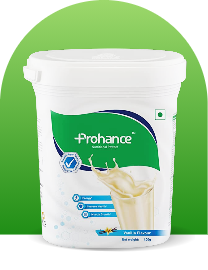
According to WHO, a healthy diet goes a long way in protecting the body against non-communicable diseases and malnutrition of all forms. On the contrary, sticking to an unhealthy diet is one of the leading causes of health risks worldwide.
And when it comes to achieving optimal health, a well-balanced meal or diet should be the first priority. This kind of diet will increase physical resilience and help keep many diseases and disabilities at bay.
A perfectly balanced meal comes loaded with 5 components – carbohydrates, fats, proteins, vitamins and minerals, and water. Scroll down to discover about these components and in what percentage your body needs them to stay in its healthiest state.
A well-balanced diet is indispensable if you want your body to stay healthy for longer. The primary benefits of a balanced diet are:
A well-balanced diet is holistic and includes the essential components or food groups in adequate amounts, and is low in unwanted nutrients like trans-fats and sugar. Here are the food groups that make their entry to a balanced diet chart:
Carbohydrates are one macronutrient your body uses to generate energy. Although carbs are necessary, you need to control their intake as excess carbs are linked to increased risk for type 2 diabetes and poor control of the disease as per research. Quality is also a key factor here. Rely on ‘good carbs’ like 100% whole grains, nuts, legumes, and veggies instead of refined or ‘bad’ carbs like cookies, white bread, and the like.
Proteins, a major source of amino acids, are building blocks of life. They are crucial for the growth, repair, and maintenance of cells. The Recommended Dietary Allowance (RDA) for this macronutrient is 0.8 grams/per kilogram of body weight. Some good sources of protein are dairy, poultry, fish, lean meats, soy products, nuts, seeds, beans, and lentils.
Fats provide the human body with essential fatty acids that it cannot manufacture on its own. Plus, they are required to absorb fat-soluble vitamins like vitamins A, D, and E. Total fat should not exceed 30% of total calorie intake to avoid weight gain. You also need to distinguish between unhealthy fats (saturated + trans) and healthy fats (monounsaturated + polyunsaturated). Examples of good fats include nuts, seeds, fatty fish, plant butter, and vegetable oils. Sources of unhealthy fats are fried foods, processed foods, and packaged snacks.
These micronutrients help the body to carry out a wide range of functions – from supporting metabolism to maintaining cell production. However, the body can’t create these micronutrients and has to rely on food sources to get them. To get your daily dose of multivitamins and minerals, you need to intake plenty of whole grains, fruits, proteins, healthy fats, and veggies.
Water forms a major component of the human body and is responsible for many body functions, such as regulating body temperature and aiding oxygen transportation to the organs. Healthy individuals should follow the 4-6 cup rule for everyday consumption of water..
Your everyday plate should have plenty of proteins, healthy fats, good carbs, fruits, and veggies. Also, make sure to replenish your body’s hydration reserves by drinking enough water. Prohance is the best nutritional powder for those following a weight-related diet and striving to attain a balanced level of nutrition. This meal replacement powder, with 34 vital nutrients, provides balanced energy from high-quality protein, fat and carbohydrates. It acts as a nutritional supplement to provide complete nutritional requirements.
Disclaimer: This blog/publication/editorial/article is meant for awareness/educational purposes and does not constitute or imply an endorsement, sponsorship, or recommendation of any products. Please consult your doctor/healthcare practitioner before starting any diet, medication, or exercise.
